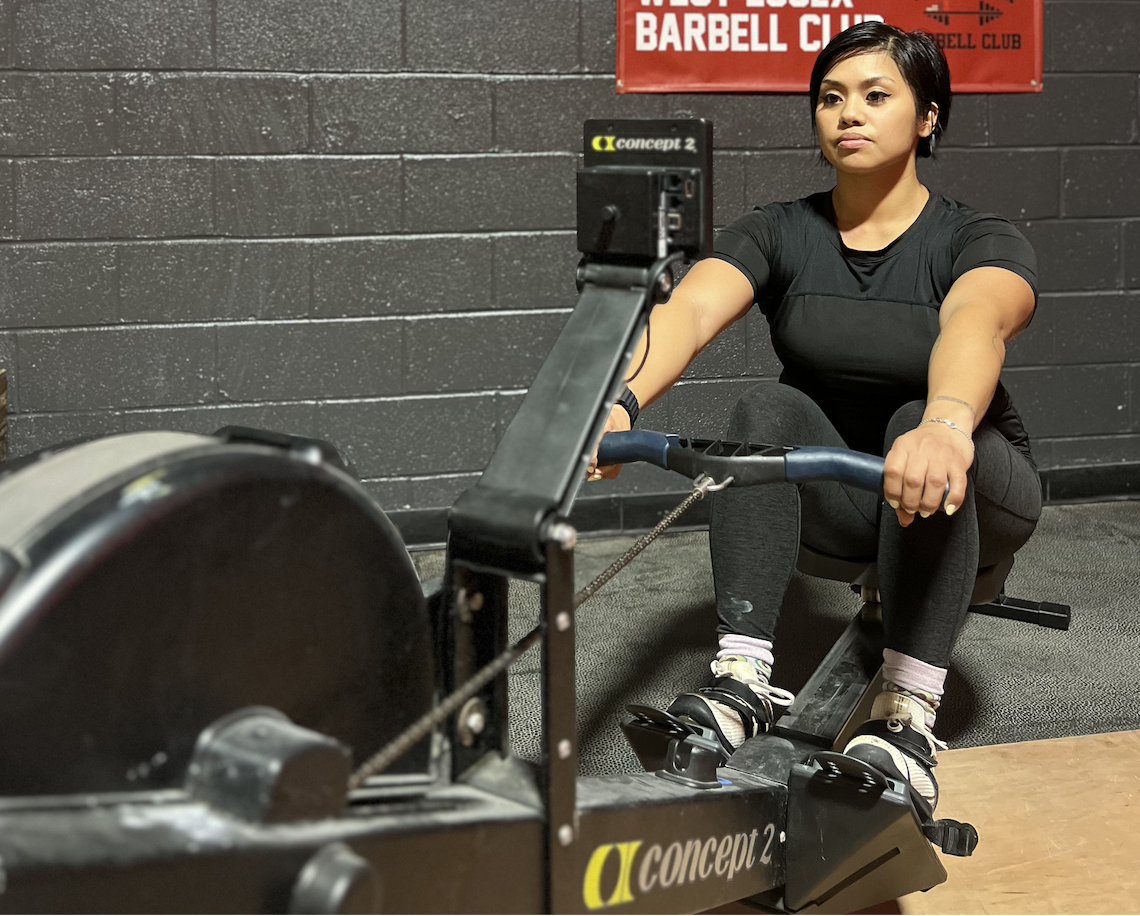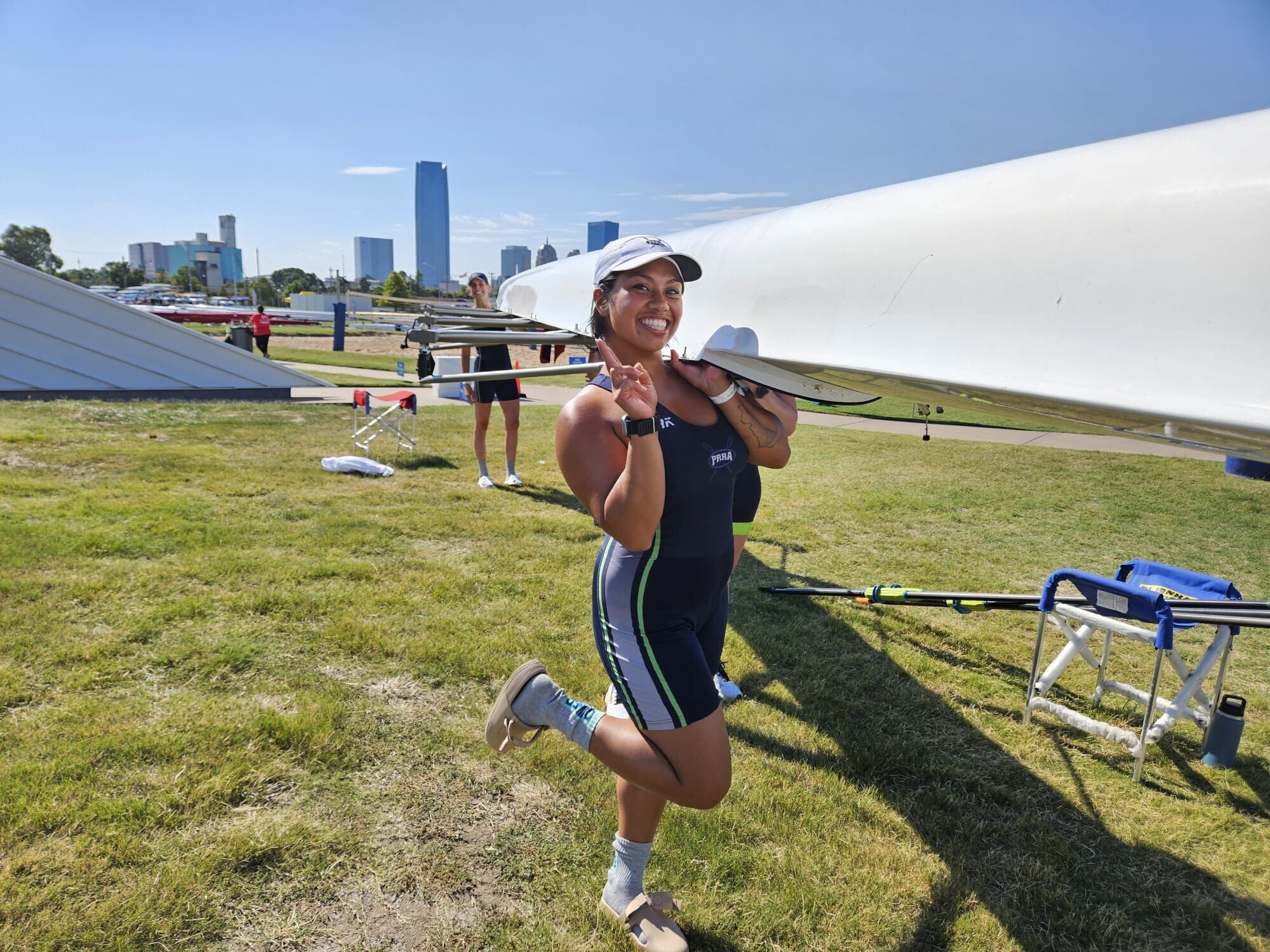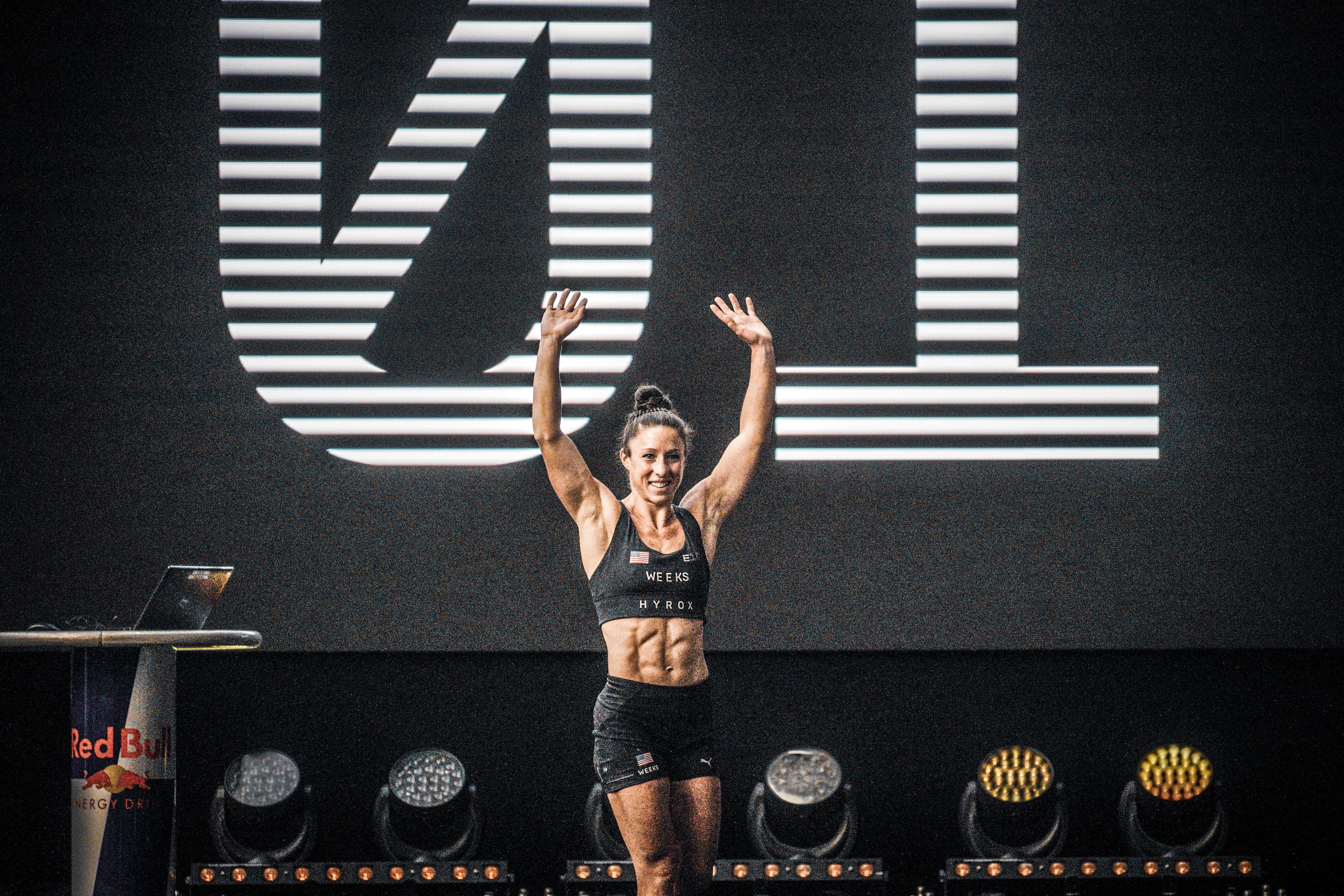Inspiring Women in Sport: Jo Victorio-Sharma
Mar 25, 2025
Share

In honor of National Women's History Month (March) and International Women's Day (March 8), we have a three-part blog series – Inspiring Women in Sport. For the third and final installment, Concept2 sat down with Jo Victorio-Sharma, Deputy Director of A Most Beautiful Thing Inclusion Fund. Jo first discovered rowing in 2005 while in high school in New Jersey. Ever since, Jo’s life has been all about rowing. Jo has coached various programs and continues to compete as a Masters athlete.
Tell us about yourself, what you do in sport, and a few accolades you are most proud of?
I have been rowing for 20 years, and recently, I have also taken up running and Olympic weightlifting to become a more well-rounded, versatile athlete. What I am most proud of is returning to competitive rowing as a Masters rower and breaking my high school 2,000 meter record from 16 years ago. After my high school years, I told myself I would never erg another 2,000m race again, but coming back to the sport, I pushed myself to face that challenge again—and not only have I been competing, but I shattered my previous record. It was a moment of personal growth, proving to myself that limits are often self-imposed.
Another proud moment was winning first place and earning a coveted Schuykill Navy watch at the 2023 Independence Day Regatta in Philadelphia with my Women’s Double partner, Janice. In high school, there was a tradition for championship rowers - running the iconic Rocky stairs in downtown Philly, just like in the Rocky movie. Unfortunately, I never got to experience that because I had not earned a first-place finish back then. This time, I was able to cross that off my list, making the victory even more meaningful!
How did you first get into your sport and what initially drew you to competing?
I first got into rowing in 2005 as a high school sophomore when a friend recruited me to join the team. At first, I did not really like the sport—it was challenging, and I was not sure if I fit in. But once I started competing and building connections with my teammates, everything changed. As someone who did not fit the typical rower mold, I loved the idea of proving to myself—and others—that I could succeed in a sport where I was not expected to excel. The adrenaline of racing, the trust and camaraderie within the boat, and the feeling of pushing past my limits got me hooked. That is when I knew rowing was something I wanted to commit to, not just as a sport, but as a defining part of my journey.

How do you use Concept2 ergs to train for your sport?
The Concept2 RowErg is a core part of my training. I use it for steady-state work, capacity testing, and refining my technique. Watt-based training has been especially useful in tracking my effectiveness and efficiency. It is a tool that keeps me accountable and pushes me to improve. I am constantly analyzing my workout results and glad that the ergs and the ErgData app provides so much detail.
What barriers have you faced doing your sport that might not be expected?
One of the biggest barriers I have faced in rowing is being underestimated based on physical appearance. I have often had to work twice as hard to prove that I belong in competitive boats. Early on, I was overlooked for opportunities, but I learned to focus on what I could control—my technique, strength, and mental toughness.
Another challenge has been returning to the sport as a Masters rower — I doubted that I would ever return to my teenage level of athleticism, but I have found that with smarter training and experience, I am more competitive now than I was in high school. It has been a journey of pushing past stereotypes, adapting my training, and proving that strength is not just about physical attributes—it is about determination and resilience.
As a woman what would you change about your sport and experience (if anything)?
As a woman in rowing, I would love to see more focus on how women’s bodies change with age, especially when it comes to strength and endurance. I think more research and support on strength and endurance could make an enormous difference. In addition, I would love to see more women in leadership roles in the sport, whether as coaches, race organizers, or in other key positions. Having more women in those roles would be such a powerful way to inspire the next generation of female athletes.
Can you tell us about a time you were intimidated or were anxious/nervous to compete or practice but you showed up anyways and you were glad you did?
The first time I raced at Masters Nationals, I was the bow seat - and incredibly nervous. As the shortest rower on the team, I had been assigned that position due to my height. Now I had the responsibility of setting the line and making strategic calls. Despite always being the shortest on the team, I had proven myself worthy of the bow seat. And once the race started, I locked in, trusted my training, and realized I was more capable than I had given myself credit for. That race showed me I deserved to be there just as much as anyone else.

Can you tell us about a time you were proud or cherished being a part of an all-female accomplishment or team? Competing in the 2024 Masters Nationals in the Women's Quad was an unforgettable experience! Being in a boat with strong, determined women and pushing ourselves beyond what we thought possible was incredibly empowering. We lost medaling in the final by less than a quarter of a second, but honestly, the fight to get there made the loss worth it. It was not just about the race—it was the way we came together as a team, pushing each other and having each other’s backs. Even though we did not win, the connection we had as a team made everything feel worth it.
What does it mean to you to be strong and a woman in your sport?
Representation. Strength is not just about physical power—it is about resilience, discipline, and showing up even when you are underestimated. I hope my presence in the sport helps inspire other women, especially those who do not fit the “ideal” rowing mold, to keep pushing forward. No matter the challenge - whether it is being overlooked, returning to the sport as an older athlete, or breaking through mental barriers - I love showing that persistence and hard work pay off in the end.
What is something you would want to share with your younger self or to younger generations about being a woman in your sport?
You are the only person who can tell you that you cannot do something. People will doubt you - especially if you do not fit the mold - but your belief in yourself is what matters most. Learn from your failures because they are the steppingstones to success. Every day is a reset and a new opportunity to grow. Whether it is on the water, in training, or in life. Approach challenges with the mindset that progress is not always linear. Physical and mental strength is about showing up, adapting, and pushing through the tough moments. My favorite thing about being a woman in rowing is the opportunity to inspire others who face adversity and show them what is possible despite the challenges.
Where do you see yourself in your sport in 5-10 years from now and how does it differ from today?
As I get older, I appreciate the sport differently. When I was younger, I was focused on proving myself. Now, I see rowing as a lifelong journey—one that challenges me in new ways and continually teaches me about strength, patience, and perseverance. In the next 5-10 years, I see myself traveling the world and rowing in as many countries as possible. I want to continue competing, pushing my limits, and experiencing the global rowing community. The love for the sport does not fade—it evolves, and I plan to embrace every opportunity that comes my way.
Recent Posts
Tags:

